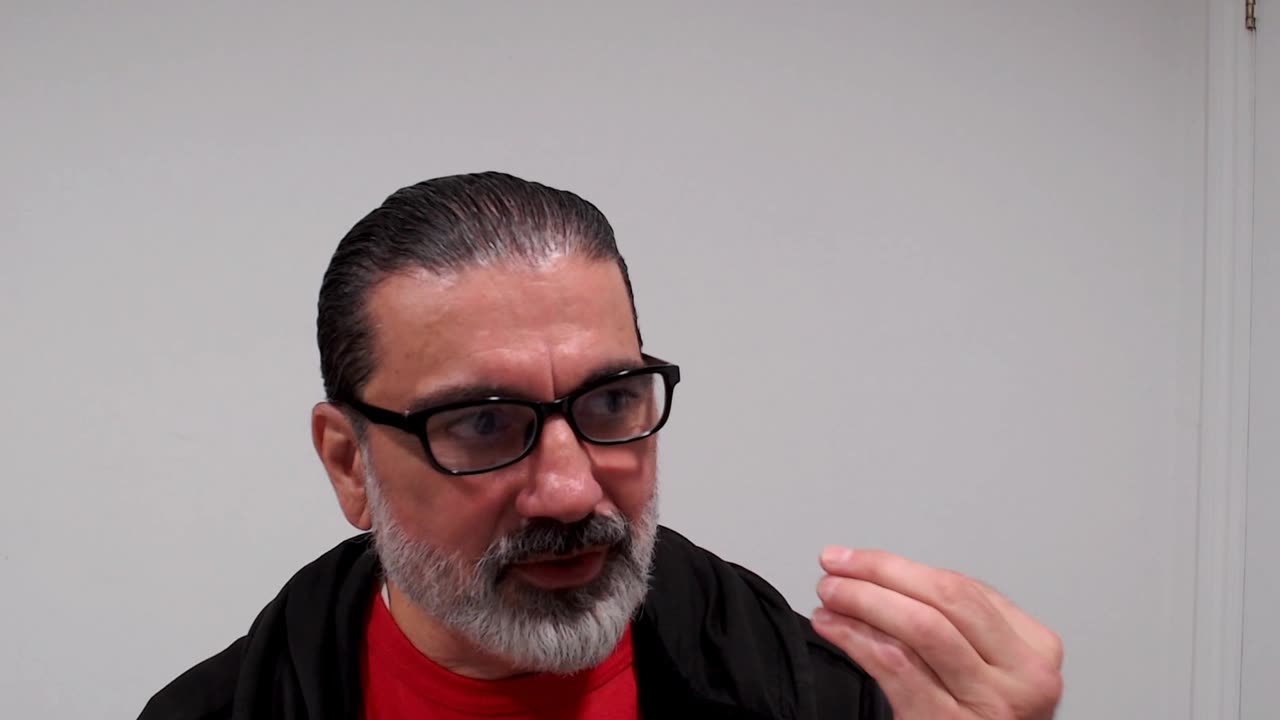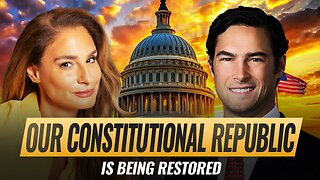Premium Only Content

Shooting From The Hip - 26 - Cognitive Dissonance & Bias, Confirmation Bias, Dunning-Kruger Effect
Cognitive Dissonance: defined as the discomfort a person feels when their behavior does not align with their values or beliefs- is the perception of contradictory information & it's mental toll
according to this theory, when 2 actions or ideas are not psychologically consistent with each other, people do all in their power to change them until they become consistent with things relevant to the individual; including actions, feelings, ideas, beliefs, values
-the psychological discomfort is triggered by clashing beliefs, views; with new information, ideas that challenge their beliefs & views, the individual then tries to find a way to resolve the contradiction to reduce their discomfort, including denial
is not a disease or illness it is a psychological phenomenon that can happen to anyone
1950s American psychologist Leon Festinger proposed that human beings strive for internal psychological consistency to function mentally in the real world
A person who experiences internal inconsistency tends to become psychologically uncomfortable which motivates them to reduce the cognitive dissonance
Rationalizations, Confirmation Bias or by avoiding circumstances & contradictory information likely to decrease the cognitive dissonance
"Magnitude of dissonance"- term refers to the level of discomfort caused to the person- the greater the personal value of thoughts, ideas, beliefs, the greater the magnitude of the dissonance- there is a level of discomfort within each person that is acceptable for living. When a person is within that comfort level, the dissonant factors do not interfere with functioning
Confirmation Bias:
is the tendency to search for, interpret, favor & recall information in a way that confirms or supports one's prior beliefs or values.
this display of bias, selective information that specifically supports their views, ignoring contrary information, or the use of ambiguous evidence to support an existing attitudes, perception
tactic used for desired outcome, as in emotionally charged issues & for deeply held beliefs
some argue Confirmation bias cannot be eliminated, but it can be managed, for example, by education & training in critical objective thinking skills
Cognitive bias: is the tendency to act in an irrational way due to our limited ability to process information objectively - is a systematic error in thinking that occurs when people are processing & interpreting information in the world around them & affects the decisions & judgments made - interpretation, perception, bias, prejudice, preferences, opinions & memories
Dunning-Kruger Effect - is when people with limited competence in a particular domain overestimate their abilities -some researchers also include the opposite effect for high performers: their tendency to underestimate their skills
-initial study published - David Dunning & Justin Kruger in 1999 - focus logical reasoning, grammar & social skills - disagreements about what causes the Dunning–Kruger effect
-according to Metacognitive (is an awareness of one's thought processes and an understanding of the patterns behind them) explanation, poor performers misjudge their abilities because they fail to recognize the difference between their performances & their actual abilities with a tendency to think one is better than average
-Dunning-Kruger Effect is a cognitive bias; is a systematic pattern of deviation from norm or rationality in judgment
-individuals create "subjective reality" from perception & interpretation of their experiences - an individual constructs reality, based on personal preferences, bias, prejudice which informs their behavior - instead of objective empirical evidence & statistics
cognitive biases may sometimes lead to perceptual distortion, inaccurate judgment, illogical interpretation & irrationality
Emotional biases: stem from impulse or intuition & tend to result from reasoning influenced by feelings & memories - emotional predisposition - emotional charged issues are deeply rooted - effects of emotional biases can be similar to cognitive biases
Emotional maturity: means having the self-control to manage your emotions & work to understand them - emotions not weakness, meant to be understood
Four States of Emotional Maturation: Survival (fear-based living); Security (duty-based living), Success (ego based living), Serenity (love/trust-based living) -with emotional maturity one can admit when they need help
building emotional maturity relies on both self-exploration, self-education & personal experience of self
Subjectivity: quality of being based on or influenced by personal feelings, tastes, or personal opinions & feelings - perception
Objectivity: quality of being able to make a decision or judgment in a fair way that is not influenced by personal feelings, beliefs, bias, opinion, preference or prejudice
-
 2:08:05
2:08:05
Badlands Media
17 hours agoDevolution Power Hour Ep. 349: Trump’s Geopolitical Gambits, Sports Psyops, and the Regime’s Unraveling
56.1K17 -
 1:08:36
1:08:36
Man in America
9 hours agoUS, China, Israel & the Battle for the New World Order w/ Boone Cutler
43.6K35 -
 2:37:49
2:37:49
The Connect: With Johnny Mitchell
1 day ago $3.41 earnedBlackwater Mercenary EXPOSES Private Military War Secrets From The Middle East, Fueling Terrorism
19.4K13 -
 2:54:21
2:54:21
Total Horse Channel
1 day ago2025 Scottsdale Arabian Horse Show | Saturday Evening Session
44.1K4 -
 22:39
22:39
The Mel K Show
6 hours agoMel K & Representative Brandon Gill | Our Constitutional Republic is Being Restored | 4-26-25
39.7K20 -
 4:17:17
4:17:17
VapinGamers
6 hours ago $1.25 earned📣 Fortnite Family Night! - Games and Dubs with BrianZGame - !rumbot
22.9K1 -
 LIVE
LIVE
ThePope_Live
4 hours agoLIVE - First time playing The Finals in over a YEAR! Still good? with @Arrowthorn
153 watching -
 3:06:26
3:06:26
TruthStream with Joe and Scott
10 hours agoRoundtable with Patriot Underground and News Treason Live 4/26 5pm pacific 8pm Eastern
31.8K26 -
 8:52
8:52
Tundra Tactical
7 hours ago $8.27 earnedSCOTUS Denies Appeal, Minnesota Courts Deal 2a Win!
38.3K8 -
 LIVE
LIVE
a12cat34dog
9 hours agoONE WITH THE DARK & SHADOWS :: The Elder Scrolls IV: Oblivion Remastered :: FIRST-TIME PLAYING {18+}
879 watching